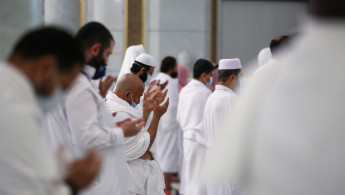Saudi Arabia suspends special Umrah e-visas for Egyptians following Hajj heatwave deaths
Saudi Arabia has suspended B2C Umrah e-visas for Egyptians, following the Hajj heatwave crisis which resulted in over 1,300 deaths.
The B2C is an electronic visa that allows pilgrims to book directly through the kingdom's online Umrah portal without using external travel agents.
Umrah is a short pilgrimage to holy sites in Mecca separate to the annual Hajj, which is a requirement for all eligible Muslims.
Travellers who use B2C visas first have to travel to the UAE or Oman for a six-hour transit period, before heading to Saudi Arabia for the pilgrimage.
The new Umrah visa regime comes after at least 1,301 worshippers died due to extreme heat during Hajj this month with many travelling on non-official visas, which left them without adequate access to food, water, transport, or accommodation.
Saudi Arabia's official news agency reported that over three-quarters of those who died had non-Hajj permits, forcing them to walk for hours in direct sunlight and without proper provisions. Around 650 of those who died were Egyptian.
Egypt's President Abdel Fattah Al-Sisi stressed earlier this week that the suspension of the B2C visa is only a temporary measure.
Egyptians will still be able to perform Umrah, which can be done at any time of year unlike Hajj, however this can currently only be done through the standard B2B visa which allows for direct entry into Saudi Arabia.
The B2C visa has also been suspended for Pakistan, according to various reports.
The deaths of Egyptians during Hajj prompted Egypt Prime Minister Mostafa Madbouly to strip 16 tourism companies of their licenses, referring their managers to prosecutors for authorising people to perform the pilgrimage through illegal and irregular channels.
Hajj permits are typically allocated to countries on a quota system and distributed to people via a lottery, however, the process can be costly for many leaving them to travel for the pilgrimage on a non-official visa or without a permit.
Extreme heat
Human Rights Watch issued a report on Tuesday stating that Saudi authorities have an obligation to protect people from extreme heat, particularly as the climate crisis has caused temperatures to rise.
"Beyond Hajj, they should implement heat protection measures to better safeguard the health of all those at risk. This is especially urgent given Saudi Arabia's plans under Vision 2030, which includes increasing the annual number of religious pilgrims to 30 million from 8 million," the report states.
The report said that next year's Hajj pilgrimage will take place in the summer where temperatures are expected to be high, with calls for Saudi authorities to treat the Hajj as a a hazard and public health risk.
Hajj is being increasingly affected by climate change, with the UN's intergovernmental panel on climate change warning parts of the Gulf could become uninhabitable by the end of the century.
Last year, over 10,000 heat-related illnesses were recorded, with ten percent of them being heat stroke, a Saudi official told AFP earlier this month.





 Follow the Middle East's top stories in English at The New Arab on Google News
Follow the Middle East's top stories in English at The New Arab on Google News


